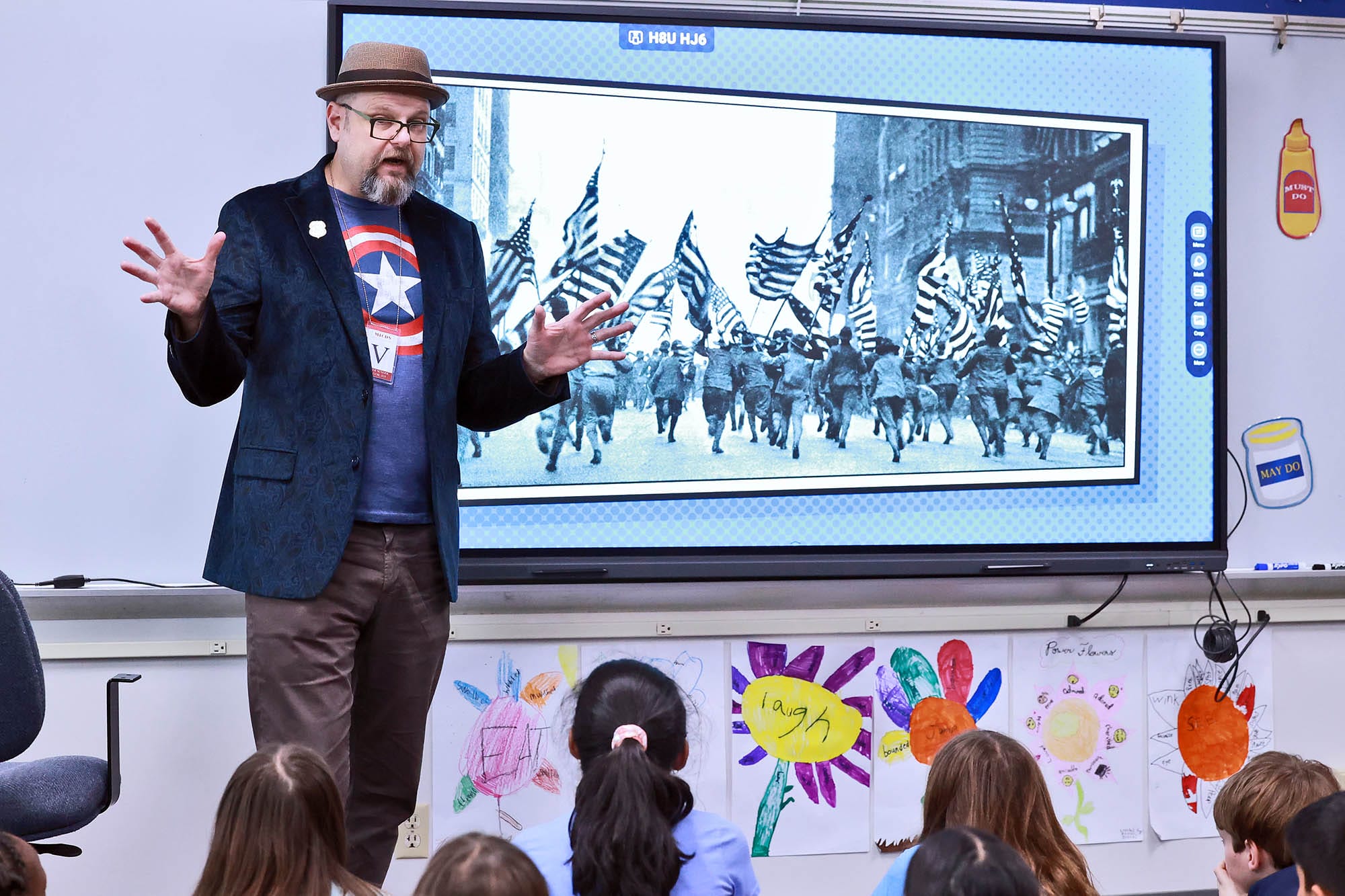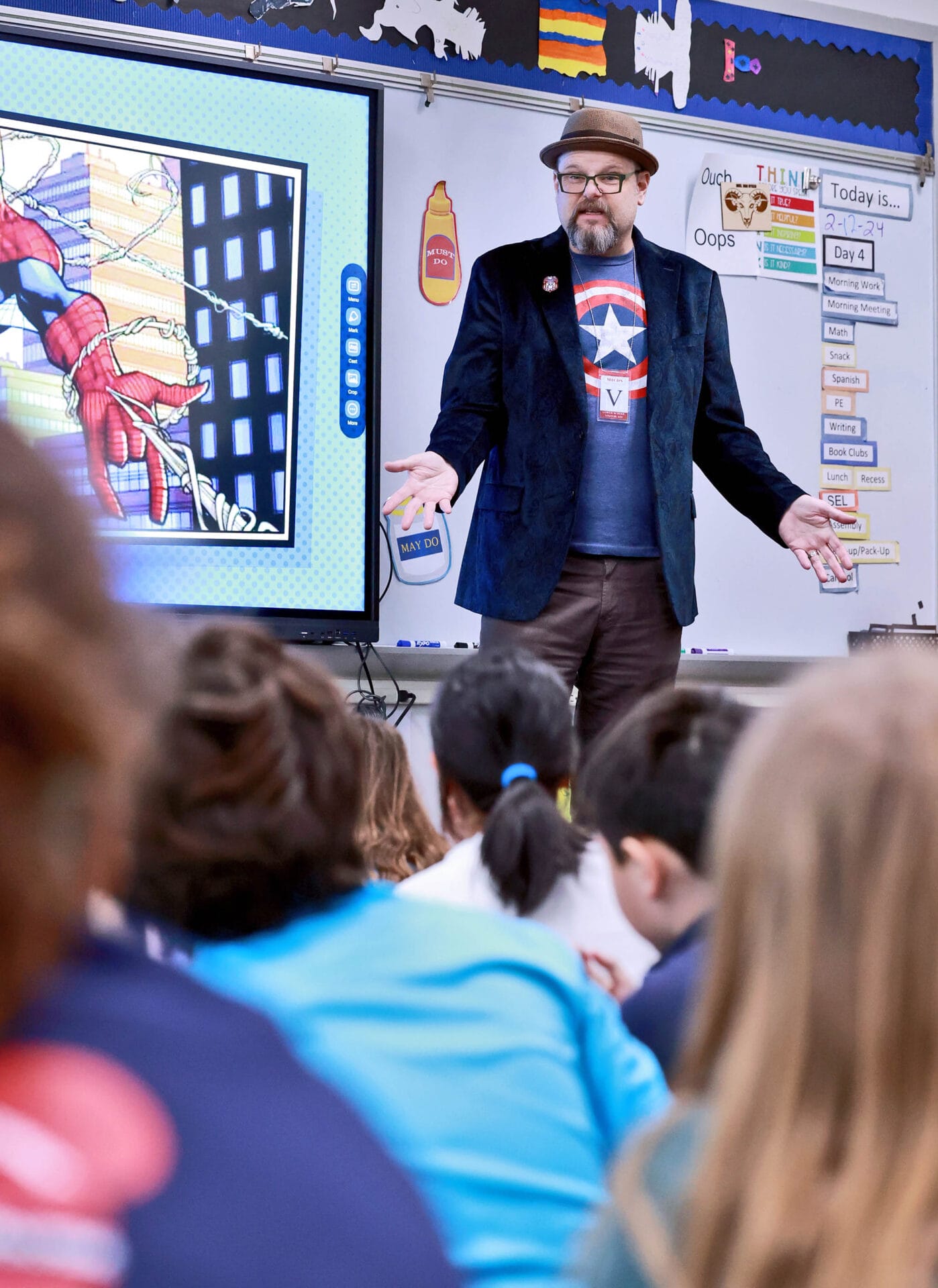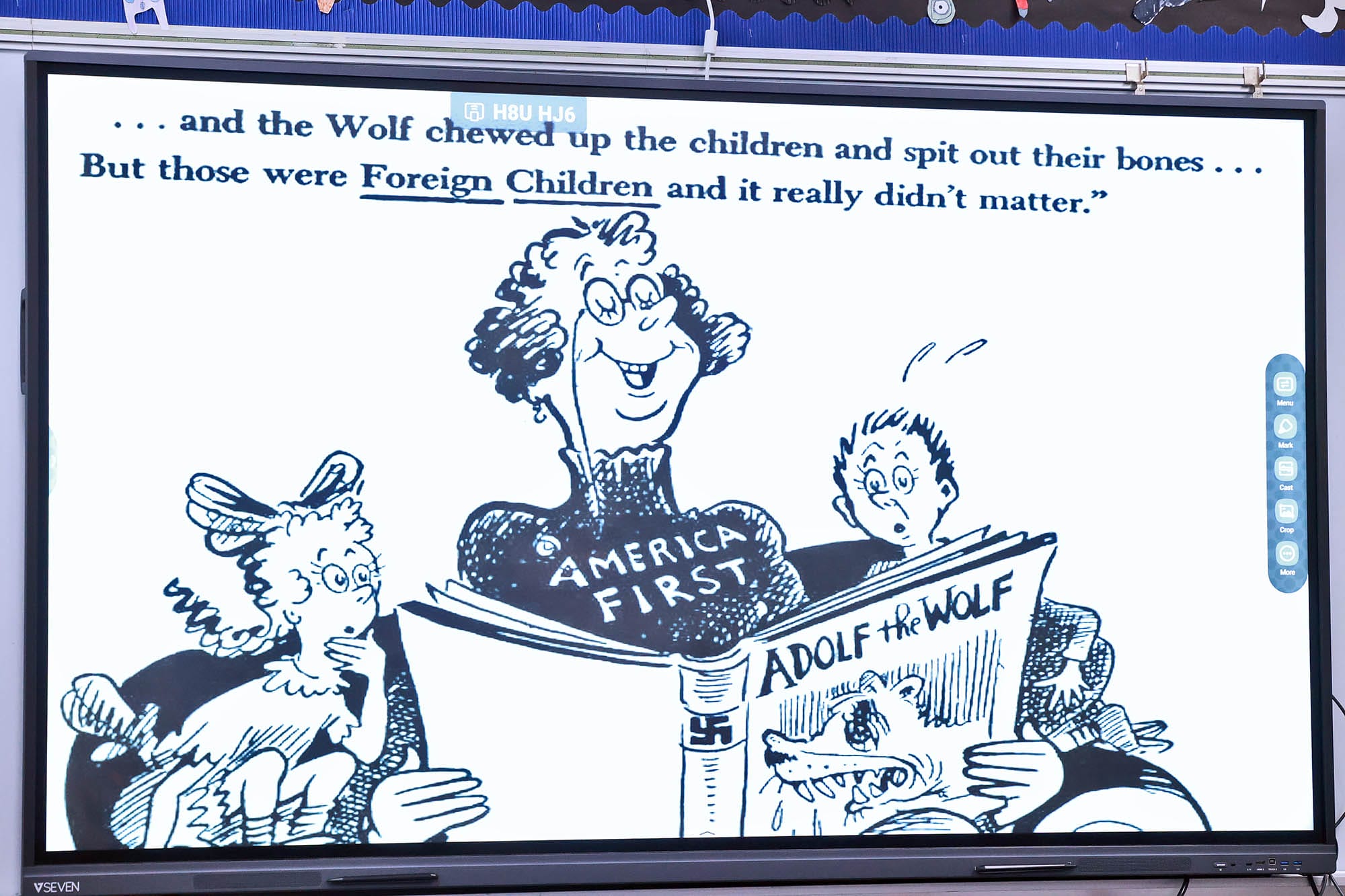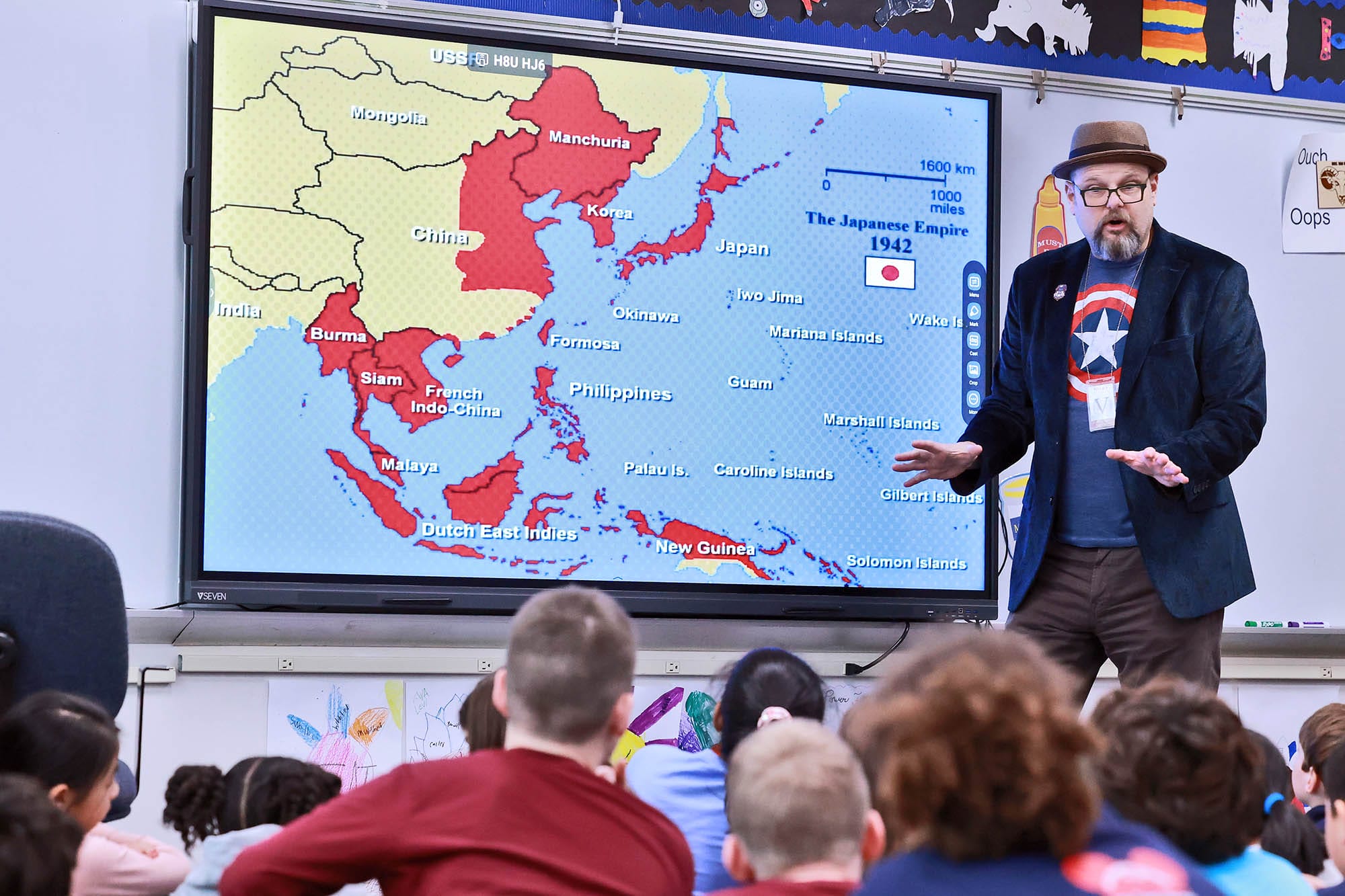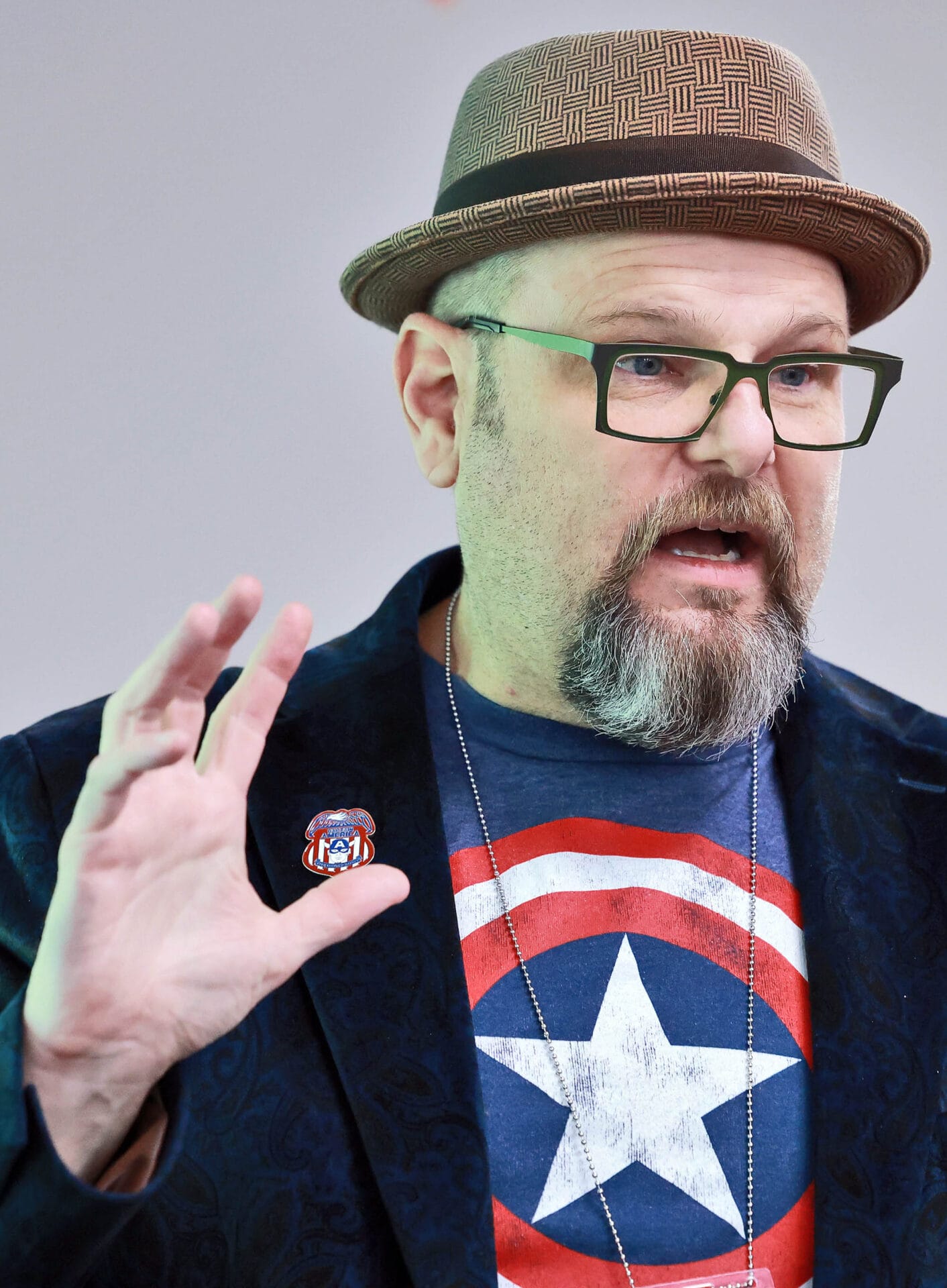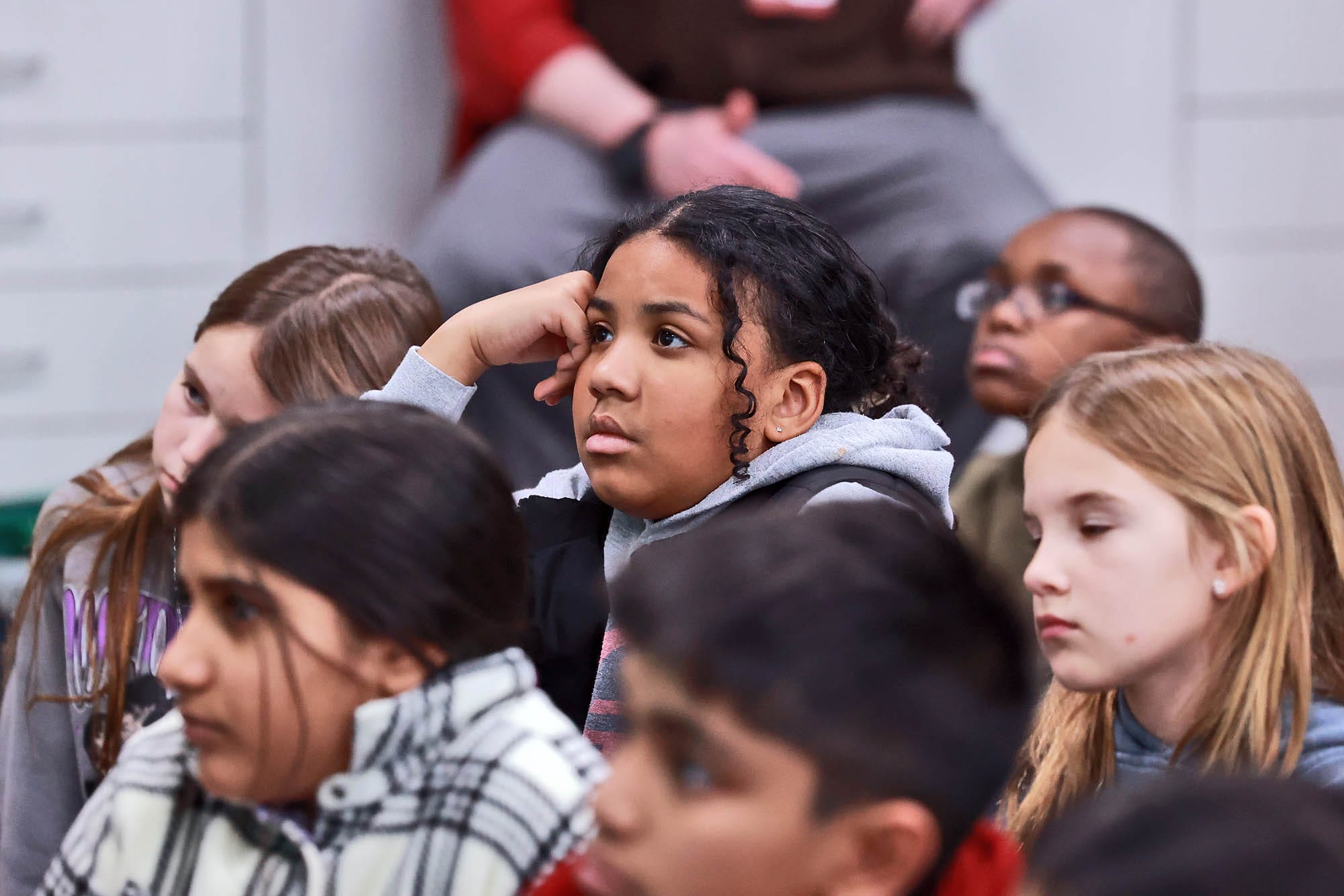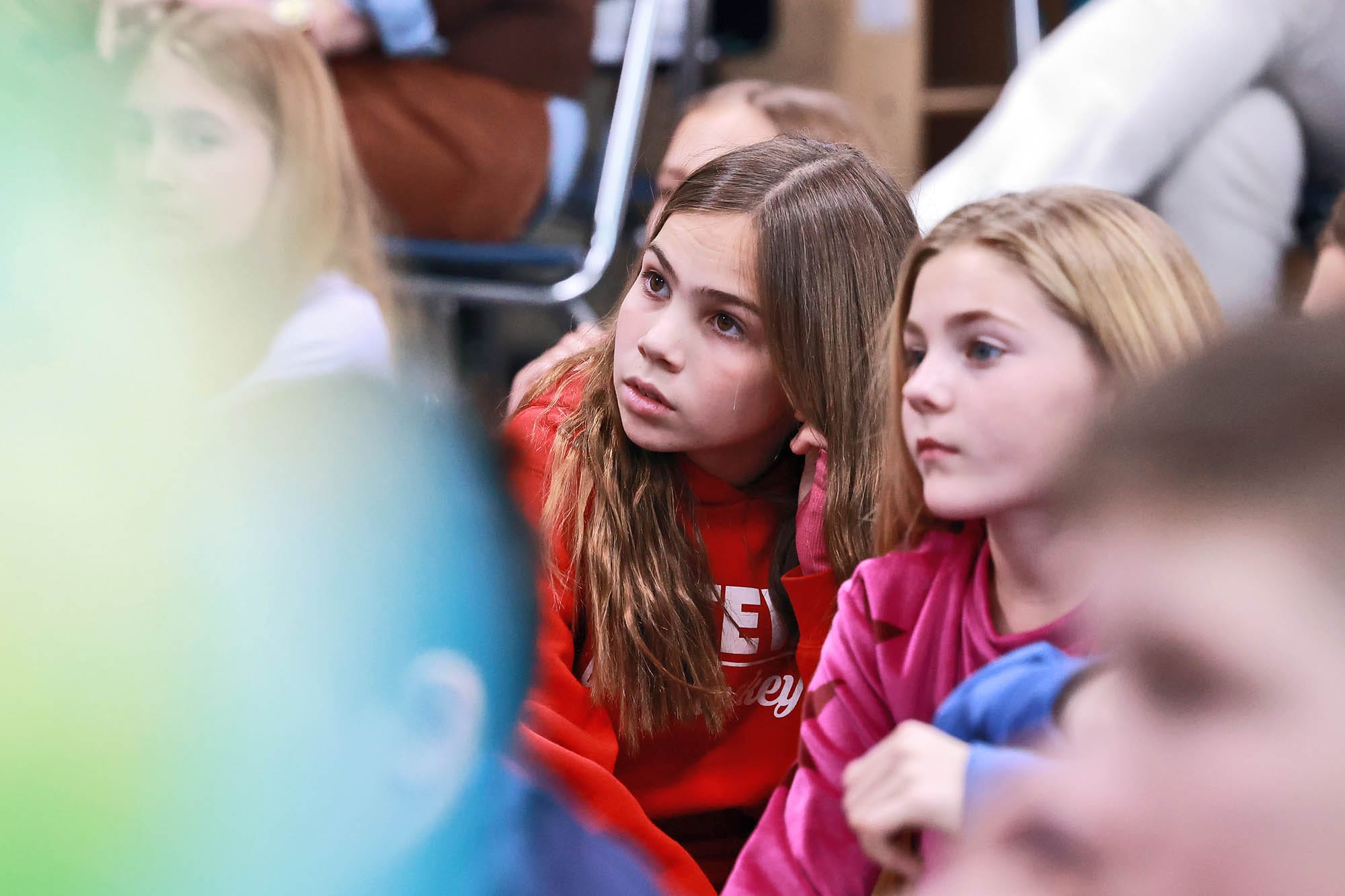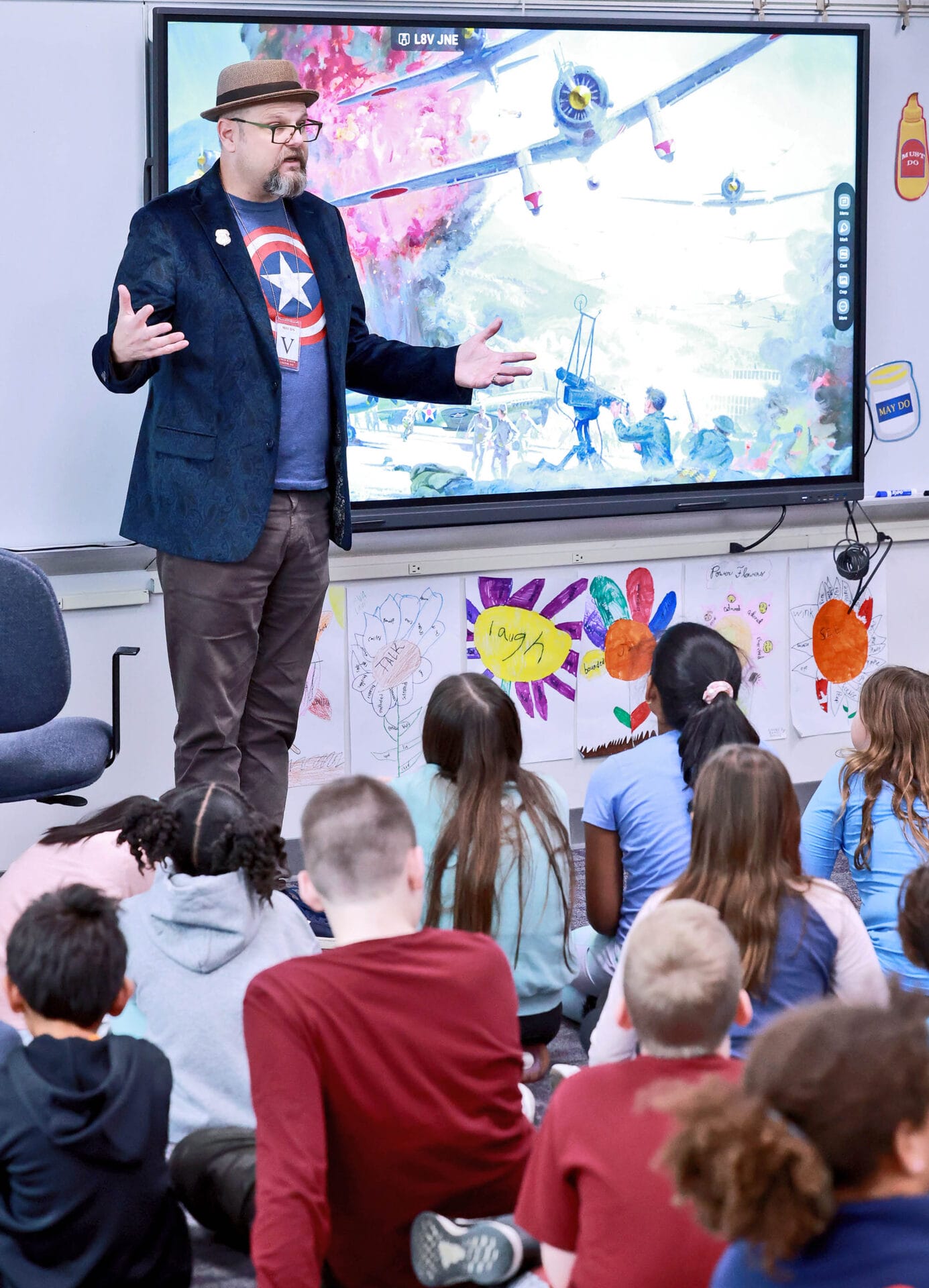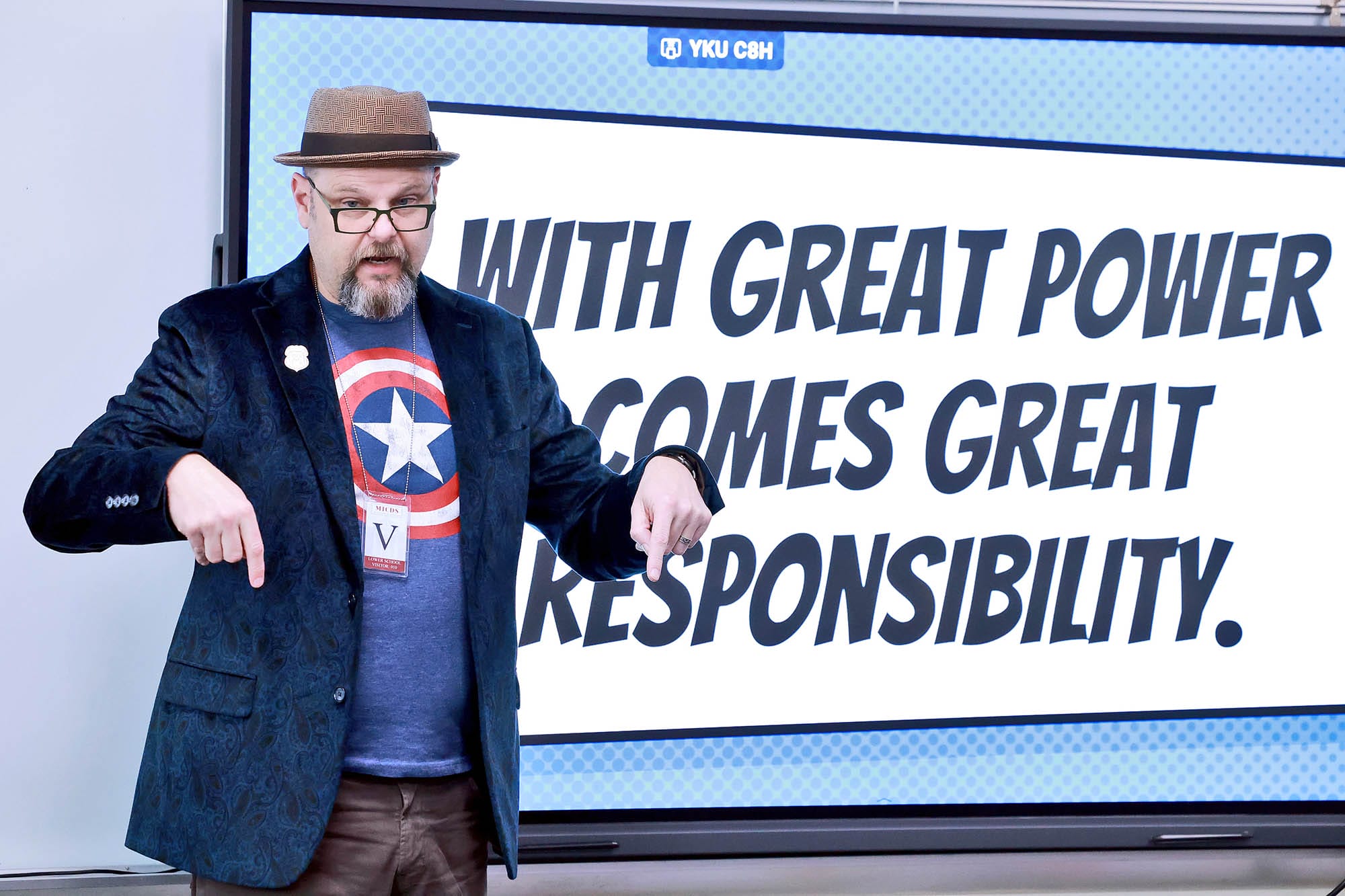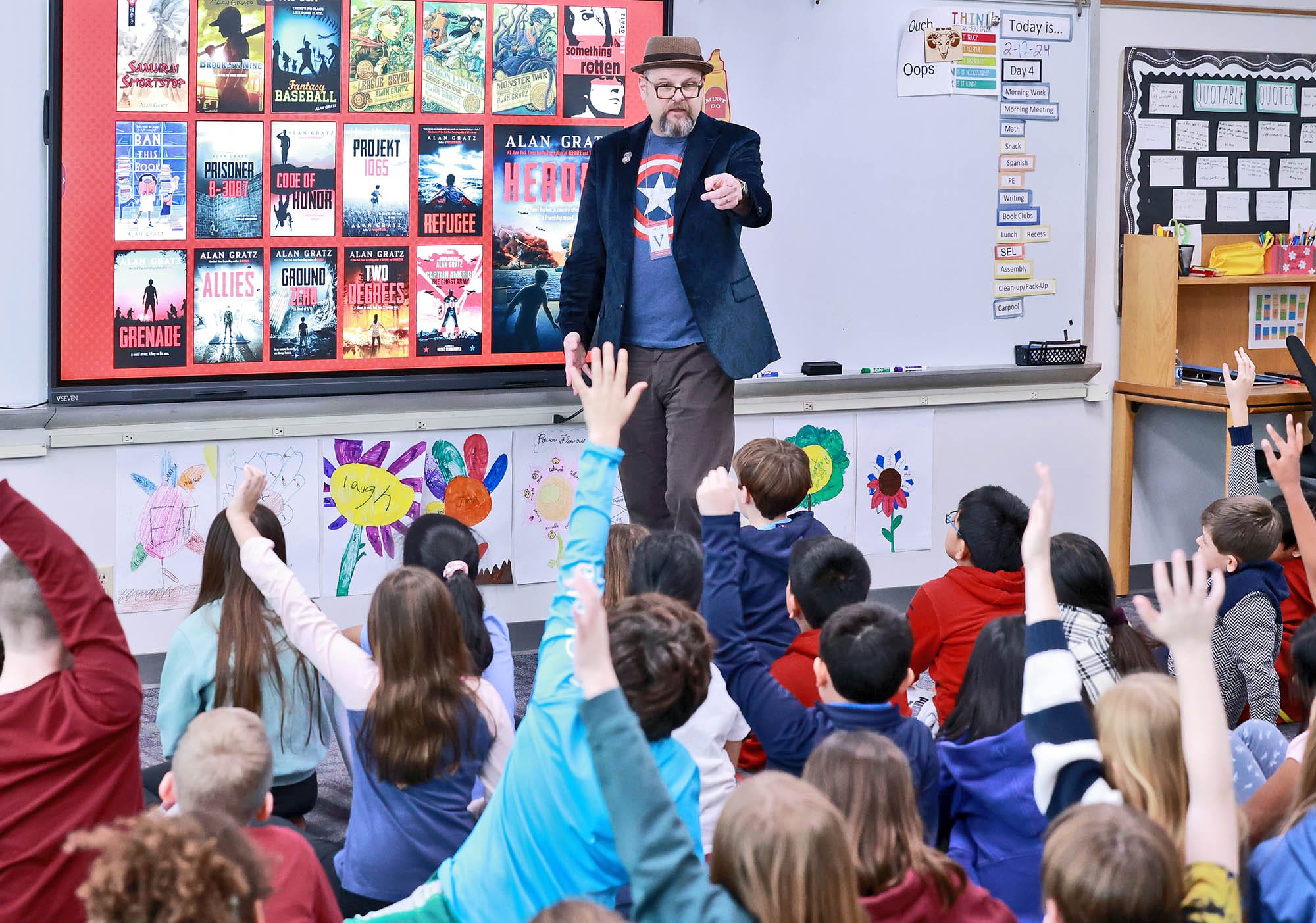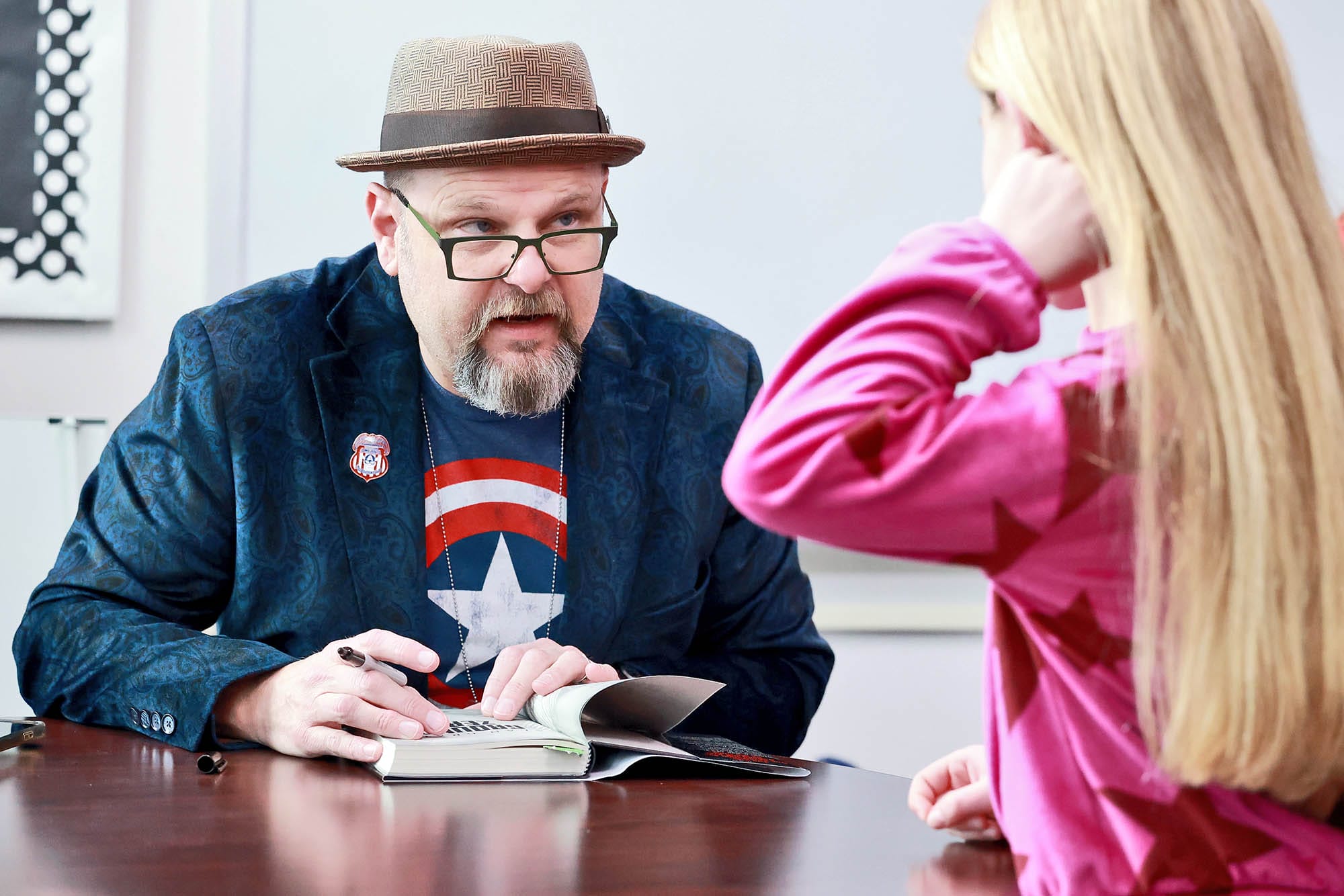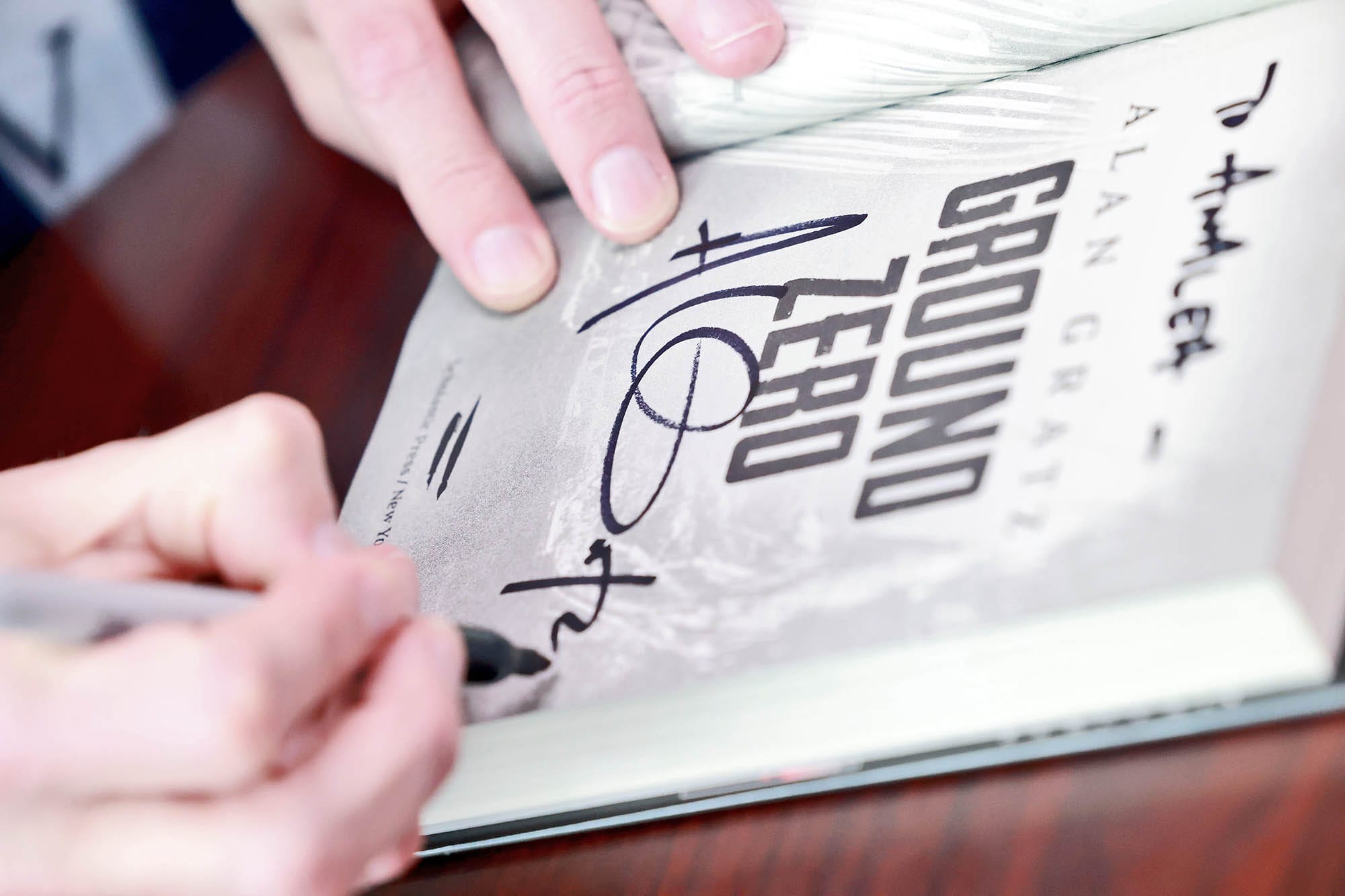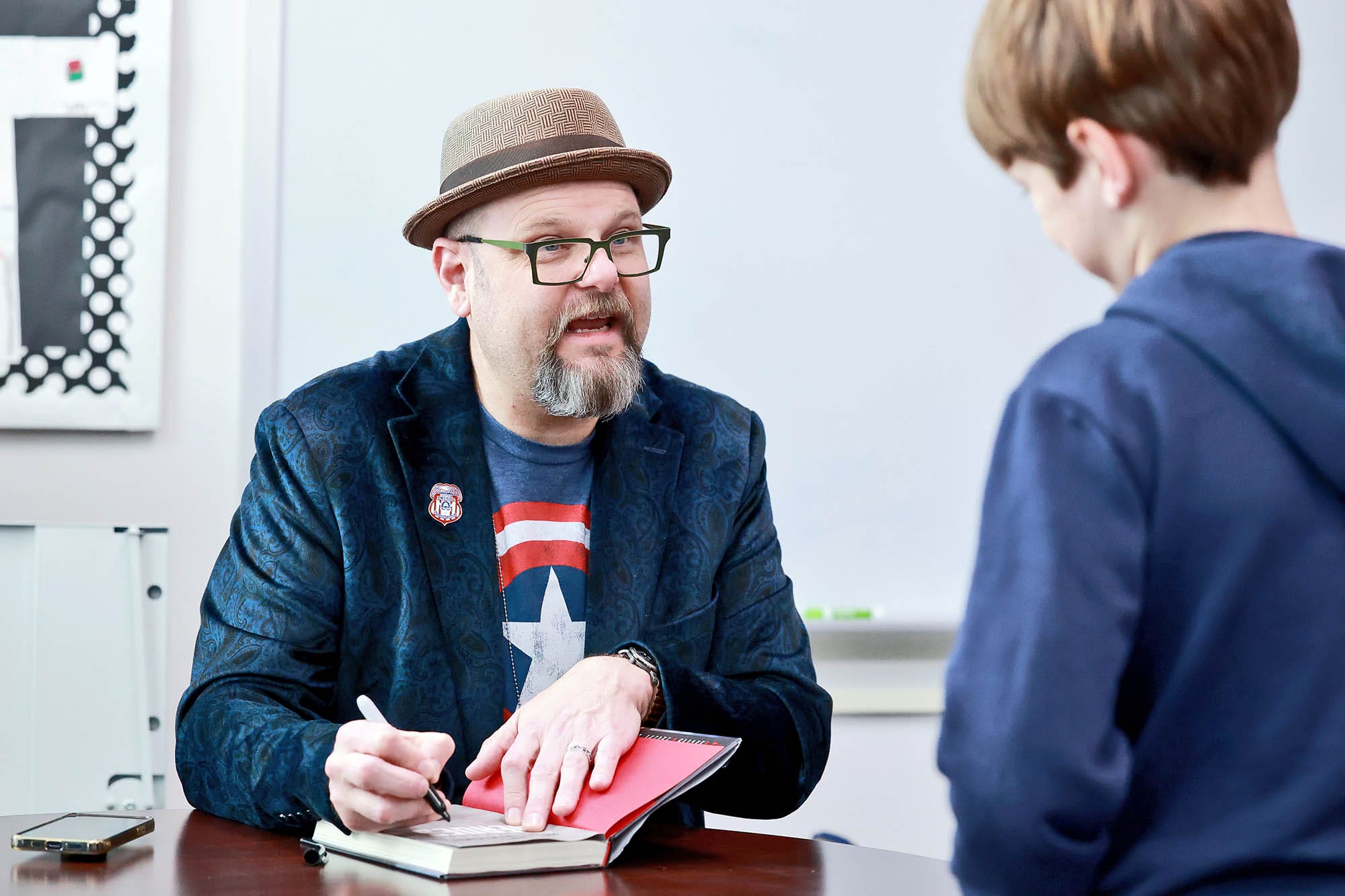Author Alan Gratz visited with our fourth-grade students this week, sharing information about his books, what inspires him to write, and how great power comes with great responsibility.
“He visited this week to present his new book Heroes, which discusses the attack on Pearl Harbor in 1941,” said Thomas Buffington, Lower School Librarian. “Coincidentally, our fourth graders have been working with similar content in the library over the past winter, so the timing of this visit was unbeatable. We began by talking about Pearl Harbor Day in December, and the kids’ piqued interest actually guided us through subsequent subjects such as the Japanese-American internment, the Navajo Code Talkers (a big thanks to Director of Instructional Technology Elegan Kramer for this lesson idea!) and the Manhattan Project. This exploratory unit was a great way to challenge the students to practice their research and coding skills through related activities, as well as showcase some of our great library books about these topics.”
Gratz began the session by describing how he started writing when he was about their age, publishing a neighborhood newsletter and his first book, titled Real Kids Don’t Eat Spinach. He’s now the author of 20 books.
“With great power comes great responsibility.” Immortal words from Spiderman, or Stan Lee, Spiderman’s creator. Gratz explained how when Spiderman first got his power, he tried to make money off it. He was broke, and he needed the cash. He saw someone getting robbed, and he didn’t do anything to stop it. He lets the guy get away. Later, he finds that his beloved Uncle Ben was shot by the robber and died because Spiderman hadn’t done anything. “That’s when he learned this hard, tragic lesson,” said Gratz.
He also shared a brief overview of the creation of superheroes like Superman, Captain America, and Wonder Woman, weaving their stories into a history lesson of both World Wars and the United States’ entry into them. Gratz then explained how the two main characters in his newest novel, Heroes, are boys living on the Ford Island Naval Air Station in Hawaii. They are touring a decommissioned battleship when the first strike of the Japanese against Pearl Harbor hits. Gratz did a great job explaining why there were so many ships and airplanes stationed there at the time and showed a map explaining where everything happens in the novel.
The students were transfixed and perhaps didn’t realize they were receiving a wonderful history lesson while being entertained by a story about a boy realizing that he has a responsibility to both his friend—a Japanese American—and others like him.
“This was definitely a high-interest content area for our students, and it showed through their excitement and appreciation when presented with their very own signed copy of Heroes as a memento from this learning experience!” shared Buffington. “We were also able to add some of his titles to our Library and the fourth-grade classrooms thanks to our partnership with The Novel Neighbor.”
“What is it going to take for you to stand up and fight for what’s right?” Gratz asked the students. “Will you be like the U.S. before WWII and stay out of it, or are you going to be like a superhero and stand up for what’s right even if it makes you uncomfortable or puts you in danger?”
“There’s no Superman, Spiderman, Captain America, or Wonder Woman. No one is coming to save us. If we want to fix things, make things better, we have to save ourselves.”
-Alan Gratz
Gratz also took time to share his writing process and how long it takes to publish a book. Once he has an idea, say to write about D-Day or Pearl Harbor, he starts by writing down everything he knows about the time and subject. That’s his starter list. Then he visits the library. “I check out as many books as I can,” he said. He takes the books back to his office and starts reading. “It can take seven, eight, or even nine months,” he said. “I’m looking for scenes in my book while I’m doing that.” He keeps notes and ideas for scenes on paper and then writes out all of the scenes on notecards that he tacks to a bulletin board. He moves the notecards around to structure his story, sometimes discarding scenes or adding new ones. This helps him outline his story and allows him to see holes and gaps. “I’m eight or nine months in, and I still haven’t written a word,” he confided. He takes all the notecards down and enters them into his computer, which gives him a chapter-by-chapter plan to write the book. “I can write the whole book in one month because I did all those months of research and outlining beforehand,” he said. “Then I’m done, right?” He laughed. After he writes the first draft, he sends it to his editor, who tells him it’s great and also gives him a long list of things that don’t work or that he has to fix. She says, “Alan, this is your best book yet. Now, here’s everything that’s wrong with it!” He goes through the list and fixes everything she notes. “Then I go through this seven or eight times,” he said. “It takes me about a year and nine months to get to the finished book. That’s like working on the same paper for two school years!” The students were amazed.
He took some questions from students, mostly about the subjects of his other books, and reminded them that “All of you are powerful in your own way. You may not be superheroes, but each of us has our own power in our own way. How will you use the power you have to stand up for what is good and right?”
“What an incredible author visit from Alan Gratz!” said Buffington. “It’s always a worthwhile opportunity to bring authors in to present to our students, as they are able to connect deeply to their texts as well as the process of creating them. A big thanks to everyone involved in making this happen, including the fourth-grade teaching team (Jen Van Dyken, Donna Waters, Allison Antolik, and Bridget Seery), our Library team (which includes Nicole Liebman, LS Library Associate), Head of Lower School Amy Scheer, and Desiree Schumann from The Novel Neighbor.”
Thank you, Alan Gratz, for spending time with our fourth-grade students and teachers this week. We are inspired to both read your books and perhaps write our own stories, and to stand up for what is good and right!
